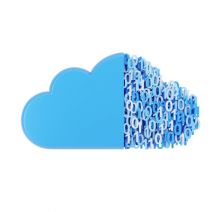 The average human being spends a significant portion of their life online, especially now that smartphones make staying connected to the latest happenings in both news and entertainment even easier than before. This, unfortunately, makes it rather easy to see spoilers for major plot points in your favorite movies, TV shows, or video games. To avoid these, try out the Spoiler Alert extension for Google Chrome.
The average human being spends a significant portion of their life online, especially now that smartphones make staying connected to the latest happenings in both news and entertainment even easier than before. This, unfortunately, makes it rather easy to see spoilers for major plot points in your favorite movies, TV shows, or video games. To avoid these, try out the Spoiler Alert extension for Google Chrome.
Macro Systems Blog
 Today’s civilization might be the most technologically advanced in the history of the world as we know it, but this also comes with the burden of properly disposing outdated technology. Unfortunately, the world faces a significant e-waste problem that cannot be ignored. As consumers of technology, this responsibility falls on your shoulders.
Today’s civilization might be the most technologically advanced in the history of the world as we know it, but this also comes with the burden of properly disposing outdated technology. Unfortunately, the world faces a significant e-waste problem that cannot be ignored. As consumers of technology, this responsibility falls on your shoulders.
 Nothing can damage a computer quite like user error. It’s sad when this happens because it’s often the case that the resulting issues could’ve easily been prevented if the user simply knew of PC best practices. Take for example these three easily-preventable PC mistakes that will do your computer harm.
Nothing can damage a computer quite like user error. It’s sad when this happens because it’s often the case that the resulting issues could’ve easily been prevented if the user simply knew of PC best practices. Take for example these three easily-preventable PC mistakes that will do your computer harm.
 When it comes to your business’s technology infrastructure, the more basic it is, the better. Granted, a simple IT infrastructure isn’t always easy to install, especially when there are so many great solutions on the market that can be implemented to achieve optimal efficiency. Sometimes the best IT solutions are those that make your technology simpler to manage, and your network less complicated. That said, you’d think redundancy would complicate this formula, but it’s actually a necessity for your business continuity plan.
When it comes to your business’s technology infrastructure, the more basic it is, the better. Granted, a simple IT infrastructure isn’t always easy to install, especially when there are so many great solutions on the market that can be implemented to achieve optimal efficiency. Sometimes the best IT solutions are those that make your technology simpler to manage, and your network less complicated. That said, you’d think redundancy would complicate this formula, but it’s actually a necessity for your business continuity plan.
 The modern business is inundated with all types of threats, from people outside the organization phishing around for information, to employees that are aloof to their role in your network’s security. If your network’s security is like a levee, it is indisputably an IT department’s job to fill in the gaps to ensure a deluge of misfortune doesn’t swamp your company’s IT. So what happens when your company’s IT department is the biggest offender of perilous activity?
The modern business is inundated with all types of threats, from people outside the organization phishing around for information, to employees that are aloof to their role in your network’s security. If your network’s security is like a levee, it is indisputably an IT department’s job to fill in the gaps to ensure a deluge of misfortune doesn’t swamp your company’s IT. So what happens when your company’s IT department is the biggest offender of perilous activity?
 Your business thrives when your technology is running smoothly, but when it fails to function as intended, it can have unforeseen consequences that reach deep into your IT budget. One of the best ways that your organization can optimize your IT is by taking advantage of outsourced services, but you don’t want to approach these “as a service” offerings uninformed.
Your business thrives when your technology is running smoothly, but when it fails to function as intended, it can have unforeseen consequences that reach deep into your IT budget. One of the best ways that your organization can optimize your IT is by taking advantage of outsourced services, but you don’t want to approach these “as a service” offerings uninformed.
 Since you run a business, you know that your business’s network requires a secure firewall in order to keep threats out. In fact, the firewall is the most basic of security protocol that you should be taking advantage of. Knowing what a firewall protects you from, and what it doesn’t protect you from, is an important first step toward improving your data infrastructure’s security, and in turn improving your business’s continuity.
Since you run a business, you know that your business’s network requires a secure firewall in order to keep threats out. In fact, the firewall is the most basic of security protocol that you should be taking advantage of. Knowing what a firewall protects you from, and what it doesn’t protect you from, is an important first step toward improving your data infrastructure’s security, and in turn improving your business’s continuity.
 A recent trend in cybersecurity is the omnipresent threat of ransomware and distributed denial of service attacks (DDoS). With hackers out to get you and your business, you need to stay updated on how to take the fight to these extortion masters. Unfortunately, victims who have become targets of ransomware, DDoS attacks, and other kinds of threatening hacker activity, often feel that “paying the piper” is the best way to resolve the issue. Well, we have news for you: it isn’t.
A recent trend in cybersecurity is the omnipresent threat of ransomware and distributed denial of service attacks (DDoS). With hackers out to get you and your business, you need to stay updated on how to take the fight to these extortion masters. Unfortunately, victims who have become targets of ransomware, DDoS attacks, and other kinds of threatening hacker activity, often feel that “paying the piper” is the best way to resolve the issue. Well, we have news for you: it isn’t.
 Take a good, hard look at your desk telephone. How often do you use it for day-to-day operations? With the advent of technologies like Voice over Internet Protocol (VoIP) and the smartphone, it seems silly to be reliant on the telephone that’s tethered to your desk. However, some people still aren’t ready to leave the office telephone behind in favor of these new technologies. But… why?
Take a good, hard look at your desk telephone. How often do you use it for day-to-day operations? With the advent of technologies like Voice over Internet Protocol (VoIP) and the smartphone, it seems silly to be reliant on the telephone that’s tethered to your desk. However, some people still aren’t ready to leave the office telephone behind in favor of these new technologies. But… why?
 Despite the rapid advancements of business technology in the past decade, enterprises the world over are still heavily dependent upon email. Therefore, every modern worker needs to be trained on how to send a professional email. If not, classic email mistakes will be made that could bruise your company’s reputation, like these four common email blunders.
Despite the rapid advancements of business technology in the past decade, enterprises the world over are still heavily dependent upon email. Therefore, every modern worker needs to be trained on how to send a professional email. If not, classic email mistakes will be made that could bruise your company’s reputation, like these four common email blunders.
 Have you ever wondered how the Internet is capable of connecting countries on the other side of the world? You may already be aware of this, but the Internet’s cables run deep underneath the ocean’s surface, all around the world. In fact, you might wonder how we could even keep these cables safe when they’re submerged underneath such an immense amount of water.
Have you ever wondered how the Internet is capable of connecting countries on the other side of the world? You may already be aware of this, but the Internet’s cables run deep underneath the ocean’s surface, all around the world. In fact, you might wonder how we could even keep these cables safe when they’re submerged underneath such an immense amount of water.
 Wearable technology isn’t a new concept, but lately it’s been exploding in popularity. People love the fact that they can use their watch to perform various features that a smartphone can accomplish, and they enjoy how their workouts can be monitored by various health sensory-type devices. However, is this obsession with wearable technology going to amount to anything, or will it be a notorious flop?
Wearable technology isn’t a new concept, but lately it’s been exploding in popularity. People love the fact that they can use their watch to perform various features that a smartphone can accomplish, and they enjoy how their workouts can be monitored by various health sensory-type devices. However, is this obsession with wearable technology going to amount to anything, or will it be a notorious flop?
 What’s your reaction to your mobile device beeping at you? If you’re the kind of person that drops everything to see what it says, then you’re probably way more distracted at work than you should be. It’s a bad habit to look at your phone every minute or two, but with hard work, habits can be broken. Here are three actions you can take to minimize workplace distractions so you can be more productive.
What’s your reaction to your mobile device beeping at you? If you’re the kind of person that drops everything to see what it says, then you’re probably way more distracted at work than you should be. It’s a bad habit to look at your phone every minute or two, but with hard work, habits can be broken. Here are three actions you can take to minimize workplace distractions so you can be more productive.
 Technology has the potential to make the future of your business a success. Although, if you don’t manage your company’s technology properly, it can hinder your business, causing you to miss out on future success. In order to take full advantage of what technology can do for you, you’ll have to keep the future in mind.
Technology has the potential to make the future of your business a success. Although, if you don’t manage your company’s technology properly, it can hinder your business, causing you to miss out on future success. In order to take full advantage of what technology can do for you, you’ll have to keep the future in mind.
 We write about cyber security all of the time, and for good reason. You need to be sure that your organization’s defenses are bulletproof, or at least optimized for maximum security. A recent debacle in the United States serves as a reminder that even high-level, super-secret government accounts can be hacked, like this story from the Central Intelligence Agency (CIA).
We write about cyber security all of the time, and for good reason. You need to be sure that your organization’s defenses are bulletproof, or at least optimized for maximum security. A recent debacle in the United States serves as a reminder that even high-level, super-secret government accounts can be hacked, like this story from the Central Intelligence Agency (CIA).
 Your business’s operations rely on wireless Internet in order to maintain optimal efficiency, and it’s normal to not want to share this private connection with just any stranger that wanders into your office. However, guests or potential clients that visit your office might want a piece of the action, too. It’s clear that you don’t want them accessing your private network, so the natural solution is to integrate a guest wireless hotspot that gives visitors the luxury of Internet without compromising your connection’s security.
Your business’s operations rely on wireless Internet in order to maintain optimal efficiency, and it’s normal to not want to share this private connection with just any stranger that wanders into your office. However, guests or potential clients that visit your office might want a piece of the action, too. It’s clear that you don’t want them accessing your private network, so the natural solution is to integrate a guest wireless hotspot that gives visitors the luxury of Internet without compromising your connection’s security.
 Mobile exploits are just as common as those found on legitimate operating systems like Windows, but many people just don’t understand this simple fact. However, this hasn’t stopped some folks from being cautious when using their devices. The latest exploit making the rounds, which takes advantage of the iPhone’s Siri or Android’s Google Now, will leave you speechless.
Mobile exploits are just as common as those found on legitimate operating systems like Windows, but many people just don’t understand this simple fact. However, this hasn’t stopped some folks from being cautious when using their devices. The latest exploit making the rounds, which takes advantage of the iPhone’s Siri or Android’s Google Now, will leave you speechless.






